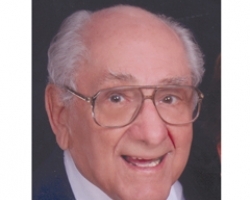Perhaps you have seen some old “cowboy movies” showing a man transmitting a message using a telegraph “dot and dash” instrument, or something similar??
The word “telegraph” comes from two Greek words:
“TELE” means far; “GRAPH” means “Graphios” (writer.)
One of the various definitions of a telegraph operator is a person who operates a telephone switchboard.
There is one person who I have personally known for ninety-four years who operated a 24-hole switchboard in a CCC (Civilian Conservation Corps) camp in the upper peninsula of Michigan in 1940 at age 17. He was selected because he was the only man who knew how to use a Remington typewriter.
His duties in the Forest Ranger station every morning was to check the ground and air temperatures, and the wind velocity.
He transmitted this information to each of the six forest fire lookout tower guards by inserting one wire-plug into the telephone switchboard, ringing the selected phone number and inserting a second wire to make contact with the tower-guard he wanted to speak to.
Directly above the switchboard, hung a detailed map of the entire forest area. At a glance, I could see the entire forest area.
Whenever a tower guard saw any smoke arising in the forest, he would phone me to tell the location of a probable fire. I would pull a string attached to a stickpin across from his location on my map and stick the pin into the map.
Soon after another guard would call in from another location and I would repeat the string process from his location.
Thus, where the two strings crossed is where the fire is. This process is known as “triangulation.” Knowing the location of the forest fire, we would dispatch a fire-fighting crew.
This process helped prevent small fires from becoming blazing infernos.
One particular Fourth-of-July weekend I’ve never forgotten is when three forest fires all raged at the same time. Mr. Armstrong, the Forest Ranger went out to supervise the first fire. Mr. Tardiff, our regular dispatcher went out to the second fire and I was left alone to handle all other matters at the Ranger Station.
I asked one CCC guy to watch the switchboard while I was at “the barns” and when any call came in to call me. “The Barns” were three garage-type structures where much of the fire-fighting equipment and vehicles are stored until they are needed.
That weekend was the busiest of my life. I worked outside busy dispatching men and equipment to a fire scene and hurried inside to operate the switchboard, for a continuous 36 hours.
My reward was a generous: “Nice job, Bill.”
The fate of the telegraph operator has always been and will always be in the proactive minds of imaginative, adventurous, ceaseless, problem-solving technologists in every current and future yet-undeveloped industries.
Just as well-known Yogi Bera has stated, “The future ain’t like it used to be.”
The history of the ages has noted the telegraph has been replaced by the never-ending, ongoing, series of communicative devices including the cumbersome use of the wall-hung telephone through the phones that were desk or table-bound with limited length of wire; ultimately became cordless, portable, and hand-held.
Even as imaginative as the inventor of the telephone, Alexander Graham Bell was in his lifetime, never could he ever have conceivably realized the countless and unlimited numbers and uses of ultra-small communicative devises that now combine and somewhat replace telephones, cameras, typewriters, fax machines, etc.
As in every advance of technology, especially the communications technology from the slow, time-consuming and limited use of the telegraph instruments through the ever-changing developments of modern, futuristic telephones and satellite-based worldwide internet computers, there will always be “something new.”
Who knows what the unlimited use of robots, drones, artificial intelligence, and 3D printing will develop into ?
The fate of this one telegraph operator is his existence in Rowntree Gardens for the next 20 years.
Bill Thomas of Rowntree Gardens in Stanton, California, is a Veteran of World War II, and Past Commander of VFW Post 4048, and American Legion Post 857. Contact Bill: vvbthomasvets@gmail.com




